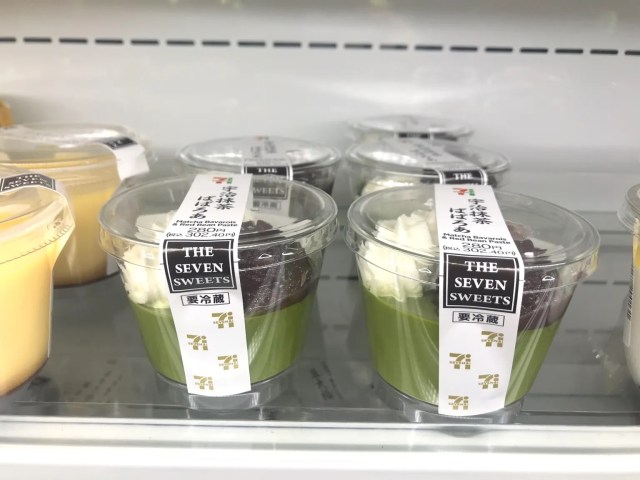
One of Tokyo’s most famous sweets stores may have closed, but this new dessert honours its legacy.
Japanese convenience store chain 7-Eleven adds new items to its shelves so often we’ve dubbed our visits there “Seven Patrol“. During one recent patrol of the shelves to discover new products, we came across a sweet in the refrigerated section called Uji Matcha Bavarois that instantly caught our attention.
At first glance, it may look like just another Japanese sweet, but it actually resembles a famous sweet from a long-established sweets shop that sadly closed its doors in 2022. That sweets store was Kinozen, located at the foot of the famous slope in Tokyo’s Kagurazaka, which was so popular it frequently appeared in magazines and TV specials.
▼ Kinozen, as it looked back in 2021.
It had been in business so long that when a lot of locals think of Kagurazaka, Kinozen still comes to mind. Founded in 1860 as a sushi store, before switching to become a Japanese cafe in 1948 during the post-war period, Kinozen served up beautiful matcha sweets in a relaxing environment, but sadly, due to various circumstances, including the ageing of the store owner, the cafe closed on 30 September 2022.
The official website still exists, but all it contains is the below notice of the store’s closure, with a message of sincere thanks to all its customers over the years, many of whom came from afar to visit.
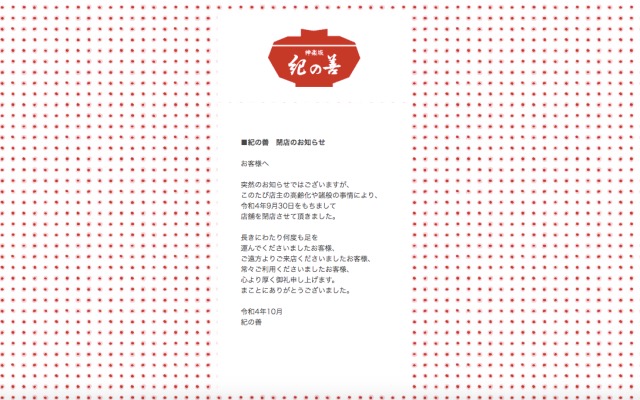
The closure left lots of people with a Kinozen-shaped hole in their hearts, so when our reporter Mariko Ohanabatake spotted this matcha sweet on the shelf at 7-Eleven, she immediately bought it as it looked identical to Kinozen’s signature sweet, which was…Matcha Bavarois.
Kinozen’s bavarois was mildly sweet, with a strong matcha aroma, fresh cream, and an elegantly sweet red bean paste. It was a sweet for adults, and many people lamented that they could no longer eat the delicacy once the store had closed. There are many stores that serve a similar matcha bavarois, but Kinozen was special as it was said to be the originator of the red bean paste, fresh cream and matcha bavarois combination.
Lifting the lid off the 7-Eleven sweet, Mariko could see that this was a wonderfully dark green matcha bavarois topped with fresh cream and a mound of crushed red bean paste. Although the amount of fresh cream here was a little less than what you’d get at Kinozen, the combination of ingredients was exactly the same.
▼ Scooping it up with a spoon, the colour of the matcha was a beautiful deep green.
Placing the heaped spoonful in her mouth, the taste of matcha bavarois was undoubtedly elegant. She could sense the bitterness and aroma of matcha, as the red bean paste and fresh cream had an elegant sweetness that didn’t overwhelm the flavour of the green tea bavarois, creating a superb balance.
A lot of convenience store sweets these days are very sweet, so this modest sweetness seemed like something of a heresy in the convenience store world.
After tasting it, Mariko had no doubt in her mind that this sweet must have been made out of respect for Kinozen’s Matcha Bavarois.
While purists might argue that the subtle difference in ingredients such as the red beans and matcha, in terms of the companies from where they’re sourced, means this isn’t exactly the same as Kinozen’s Matcha Bavarois, the bittersweet notes were so on par that they perfectly matched Kinozen’s nostalgic flavour for Mariko.
If you loved Kinozen, or are only just learning of it now, Mariko highly recommends trying 7-Eleven’s Uji Matcha Bavarois to get a sense of what made the old sweets store so popular. At 302 yen (US$2.10) a tub, it’s a small price to pay for such a luxurious indulgence, and we have a hunch it’ll taste even better if you purchase it from the oldest 7-Eleven in Japan.
Related: 7-Eleven
Photos © SoraNews24 unless otherwise stated
● Want to hear about SoraNews24’s latest articles as soon as they’re published? Follow us on Facebook and Twitter!
[ Read in Japanese ]

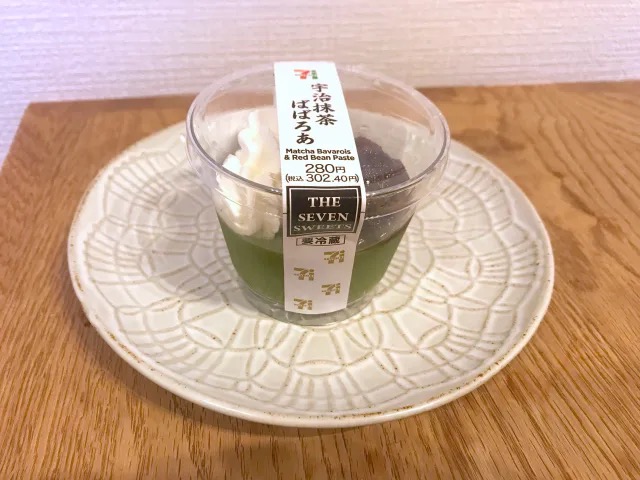
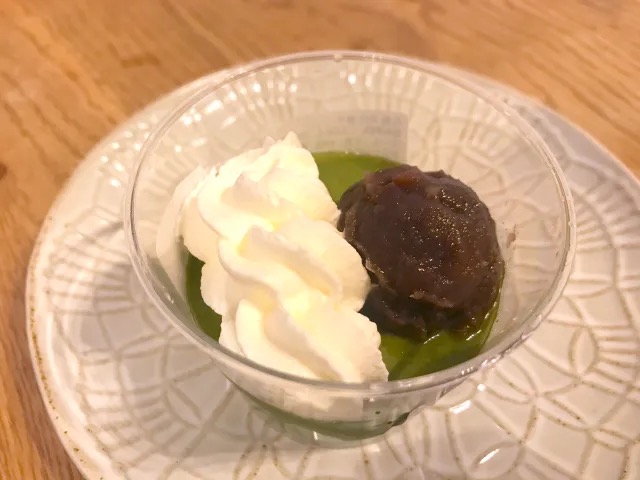
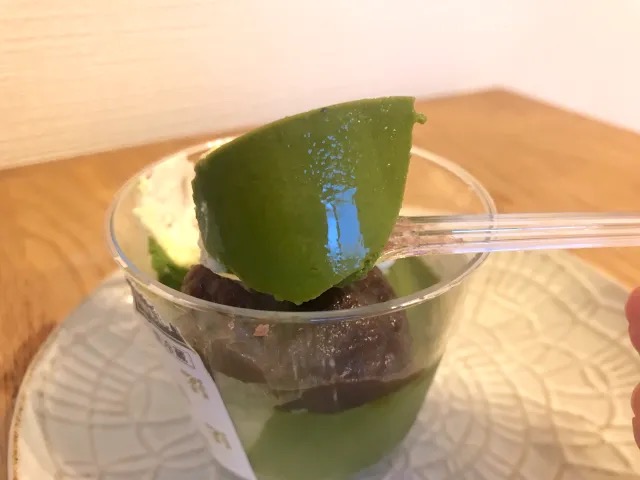
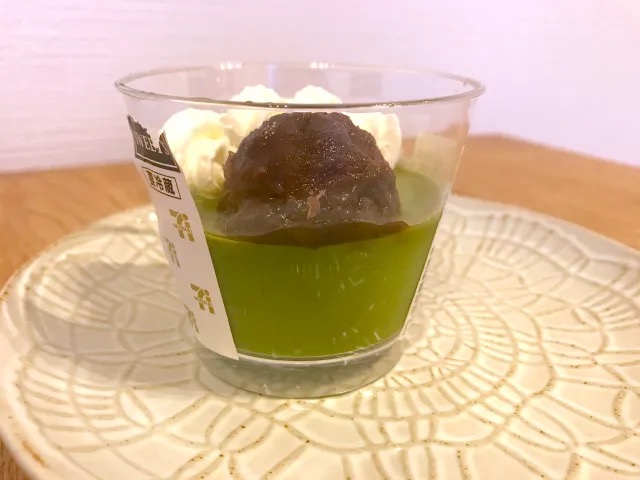
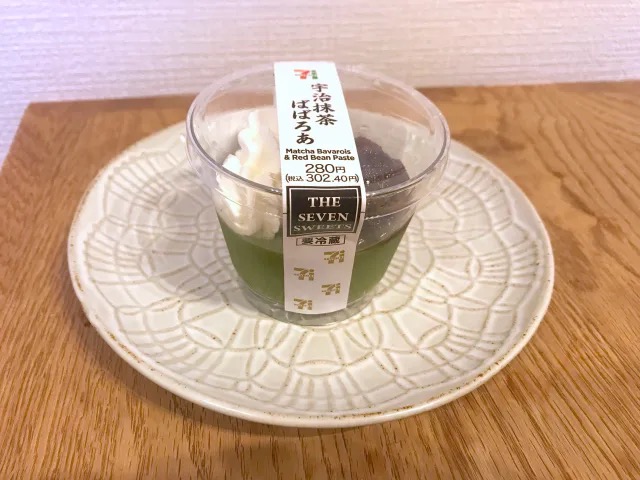
 Family Mart makes matcha dreams come true with new lineup of strong green tea sweets in Japan
Family Mart makes matcha dreams come true with new lineup of strong green tea sweets in Japan Five places to get awesome limited-edition matcha sweets right now
Five places to get awesome limited-edition matcha sweets right now Mister Donut’s strongest-ever matcha doughnuts are so intense they’ll bind with your DNA
Mister Donut’s strongest-ever matcha doughnuts are so intense they’ll bind with your DNA Japan’s massive matcha parfait weighs 6 kilos, contains hidden surprises for anyone who eats it
Japan’s massive matcha parfait weighs 6 kilos, contains hidden surprises for anyone who eats it Häagen-Dazs Japan releases Japonais Double Matcha Condensed Milk and Brown Sugar Syrup ice cream
Häagen-Dazs Japan releases Japonais Double Matcha Condensed Milk and Brown Sugar Syrup ice cream Japan’s new difficult-to-drink-from beer glass protects your liver, but it’s a brutal experience
Japan’s new difficult-to-drink-from beer glass protects your liver, but it’s a brutal experience Demon Slayer: Kimetsu no Yaiba gets new roller coaster attractions and food at Universal Studios Japan
Demon Slayer: Kimetsu no Yaiba gets new roller coaster attractions and food at Universal Studios Japan How to order snacks on a Shinkansen bullet train in Japan
How to order snacks on a Shinkansen bullet train in Japan New samurai glasses are Japan’s latest weird must-have souvenir
New samurai glasses are Japan’s latest weird must-have souvenir Hello, cosmetics! Clinique teams up with Hello Kitty this summer for first-time collaboration
Hello, cosmetics! Clinique teams up with Hello Kitty this summer for first-time collaboration High-fashion Totoro cuddle purse is like an elegant stroll in the forest【Photos】
High-fashion Totoro cuddle purse is like an elegant stroll in the forest【Photos】 Burger King Japan suddenly adds Dr. Pepper and Dr. Pepper floats to its menu nationwide
Burger King Japan suddenly adds Dr. Pepper and Dr. Pepper floats to its menu nationwide New Nintendo Lego kit is a beautiful piece of moving pixel art of Mario and Yoshi【Photos】
New Nintendo Lego kit is a beautiful piece of moving pixel art of Mario and Yoshi【Photos】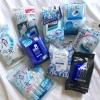 Japan’s cooling body wipe sheets want to help you beat the heat, but which work and which don’t?
Japan’s cooling body wipe sheets want to help you beat the heat, but which work and which don’t? Nintendo history you can feel – Super NES, N64, and GameCube controllers become capsule toys
Nintendo history you can feel – Super NES, N64, and GameCube controllers become capsule toys “The most Delicious Cup Noodle in history” – Japan’s French Cup Noodle wins our heart【Taste test】
“The most Delicious Cup Noodle in history” – Japan’s French Cup Noodle wins our heart【Taste test】 Starbucks releases a cute Frappuccino and Unicorn Cake…but not in Japan
Starbucks releases a cute Frappuccino and Unicorn Cake…but not in Japan Kyoto Tower mascot termination reveals dark side behind cute Japanese characters
Kyoto Tower mascot termination reveals dark side behind cute Japanese characters McDonald’s Japan’s Soft Twist Tower: A phantom ice cream only sold at select branches
McDonald’s Japan’s Soft Twist Tower: A phantom ice cream only sold at select branches Yabai Ramen: What makes this Japanese ramen so dangerous?
Yabai Ramen: What makes this Japanese ramen so dangerous? Finally! Nintendo Japan expands Switch 8-bit controller sales to everybody, Online member or not
Finally! Nintendo Japan expands Switch 8-bit controller sales to everybody, Online member or not Japanese government wants to build luxury resorts in all national parks for foreign tourists
Japanese government wants to build luxury resorts in all national parks for foreign tourists To combat declining birth rate, Japan to begin offering “Breeding Visas” to foreigners
To combat declining birth rate, Japan to begin offering “Breeding Visas” to foreigners 10 things you should buy at 7-Eleven in Japan
10 things you should buy at 7-Eleven in Japan Studio Ghibli releases anime heroine cosplay dresses that are super comfy to wear
Studio Ghibli releases anime heroine cosplay dresses that are super comfy to wear Woman charged for driving suitcase without a license in Osaka
Woman charged for driving suitcase without a license in Osaka Studio Ghibli unveils My Neighbour Totoro miniature house model
Studio Ghibli unveils My Neighbour Totoro miniature house model Kyoto experiencing problems with foreign tourists not paying for bus fares, but not on purpose
Kyoto experiencing problems with foreign tourists not paying for bus fares, but not on purpose Fighting mild hunger with a Japanese soda that turns into jelly in the stomach【Taste test】
Fighting mild hunger with a Japanese soda that turns into jelly in the stomach【Taste test】 Studio Ghibli’s Howl’s Moving Castle tapestry unveiled in Japan for first time
Studio Ghibli’s Howl’s Moving Castle tapestry unveiled in Japan for first time McDonald’s new Happy Meals offer up cute and practical Sanrio lifestyle goods
McDonald’s new Happy Meals offer up cute and practical Sanrio lifestyle goods Sales of Japan’s most convenient train ticket/shopping payment cards suspended indefinitely
Sales of Japan’s most convenient train ticket/shopping payment cards suspended indefinitely Sold-out Studio Ghibli desktop humidifiers are back so Totoro can help you through the dry season
Sold-out Studio Ghibli desktop humidifiers are back so Totoro can help you through the dry season Japanese government to make first change to romanization spelling rules since the 1950s
Japanese government to make first change to romanization spelling rules since the 1950s Foreigner’s request for help in Tokyo makes us sad for the state of society
Foreigner’s request for help in Tokyo makes us sad for the state of society Ghibli founders Toshio Suzuki and Hayao Miyazaki contribute to Japanese whisky Totoro label design
Ghibli founders Toshio Suzuki and Hayao Miyazaki contribute to Japanese whisky Totoro label design Doraemon found buried at sea as scene from 1993 anime becomes real life【Photos】
Doraemon found buried at sea as scene from 1993 anime becomes real life【Photos】 Tokyo’s most famous Starbucks is closed
Tokyo’s most famous Starbucks is closed Princesses, fruits, and blacksmiths: Study reveals the 30 most unusual family names in Japan
Princesses, fruits, and blacksmiths: Study reveals the 30 most unusual family names in Japan “Glossy green tea donuts” sound weird, look amazing in Mr. Donut team-up with Kyoto matcha master
“Glossy green tea donuts” sound weird, look amazing in Mr. Donut team-up with Kyoto matcha master Are Mister Donut’s new sakura and matcha doughnuts all they’ve been hyped up to be?
Are Mister Donut’s new sakura and matcha doughnuts all they’ve been hyped up to be? How do the new Mister Donut x Kyoto matcha masters Tsujiri donuts taste? We find out【Taste test】
How do the new Mister Donut x Kyoto matcha masters Tsujiri donuts taste? We find out【Taste test】 Mister Donut, Kyoto tea merchant create new line of treats, with one that’s two desserts in one
Mister Donut, Kyoto tea merchant create new line of treats, with one that’s two desserts in one Japan’s new 2,500-yen Ultimate Matcha Latte Float takes green tea to a whole new level
Japan’s new 2,500-yen Ultimate Matcha Latte Float takes green tea to a whole new level SoraNews24 finds its new favourite sweet: Hershey’s Japanese matcha chocolate ice cream
SoraNews24 finds its new favourite sweet: Hershey’s Japanese matcha chocolate ice cream McDonald’s Japan releases matcha green tea cake, frappes and lattes for a limited time
McDonald’s Japan releases matcha green tea cake, frappes and lattes for a limited time Mister Donut teams up with Kyoto tea specialist for new premium matcha doughnut range
Mister Donut teams up with Kyoto tea specialist for new premium matcha doughnut range Mister Donut releases new matcha doughnuts with Kyoto green tea specialists Gion Tsujiri
Mister Donut releases new matcha doughnuts with Kyoto green tea specialists Gion Tsujiri 3 convenience store ice creams you should buy at 7-Eleven in Kyushu
3 convenience store ice creams you should buy at 7-Eleven in Kyushu Starbucks Japan releases their first ever creamy fruit tea Frappuccino
Starbucks Japan releases their first ever creamy fruit tea Frappuccino Matcha Fair comes to Ikea with all things green tea
Matcha Fair comes to Ikea with all things green tea New matcha Pocky from Japan is a heavenly treat for green tea lovers
New matcha Pocky from Japan is a heavenly treat for green tea lovers Cheap, casual restaurant Gusto offers beautiful spring sweets using gourmet Uji green tea
Cheap, casual restaurant Gusto offers beautiful spring sweets using gourmet Uji green tea Kyoto tea merchant’s matcha parfait ice cream bars: The desserts we’ve been waiting 187 years for
Kyoto tea merchant’s matcha parfait ice cream bars: The desserts we’ve been waiting 187 years for
Leave a Reply